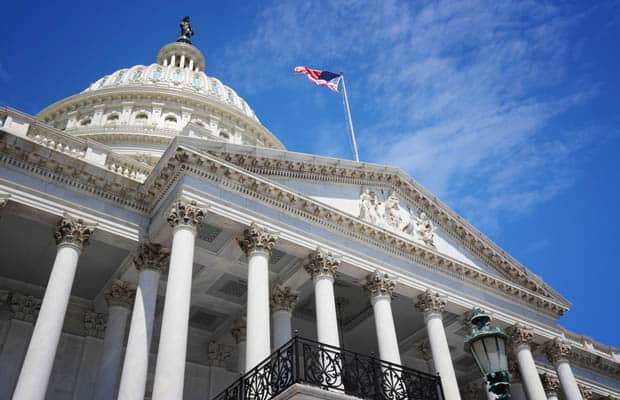In the wake of the Solicitor General’s report to the Supreme Court of the United States suggesting they not hear New Jersey’s sports betting case, a new Congressional bill has surfaced to carry on the legalization advocacy torch. The Gaming Accountability and Modernization Enhancement (GAME) Act was recently introduced by Representative Frank Pallone in the US House’s Energy and Commerce Committee.
The GAME Act calls for the standing federal ban on sports betting known as the Professional and Amateur Sports Protection Act (PASPA) to be repealed. It also aims to establish a legal precedent that would allow for all forms of gambling, including live and online casinos and poker. As of now, states have the right to decide if they want to host online poker and casinos, but only a few have acted on it.
Pallone is the committee’s ranking member, giving some credibility to the bill. One of his key arguments is that illegal sports betting is rampant with over $400 billion of revenue that the US is missing out on. This figure is certainly enticing, but with the bill’s all-encompassing premise, some of the details are a bit convoluted.
Daily Fantasy Sports (DFS) is an alternative form of sports betting that has grown in popularity. However, DFS is not provided in every state per individual states’ gambling laws. The biggest argument with DFS, as with most gambling forms, is whether it is classified as a game of skill or chance. The GAME Act defines DFS as the latter form. States are back and forth on this classification, which could lead to future disagreements over regulation. Pallone himself has admitted the bill is still in its infant stage and will need further discussion and alterations, but its presence alone is a positive sign for the sports betting world.
New Jersey was leading the charge against PASPA for several years, but their case appears to have reached its end thanks to the Solicitor General’s suggestion. NJ’s sports betting bill attempted to circumvent PASPA, not repeal it, so there a stark difference between the GAME Act and New Jersey’s 2014 sports betting bill. The Supreme Court could still decide to hear the case, which has already gone through several rounds of appeals, but all signs point to the case flatlining.
The GAME Act has a stronger chance of making a more significant impact. However, President Trump’s administration and Congress have some bigger fish to fry in terms of healthcare, tax and budget reform. President Trump has said on record that he would examine the possibility of a legalized sports betting framework, but with the political climate the way it is, sports betting is likely on the bottom of the priority list. The American Gaming Association (AGA) has been lobbying for this bill for some time and expect some form of it to make it to President Trump during his presidential term, but that leaves a long window of potentiality.
Pallone, the AGA and other sports betting legalization advocates are optimistic regarding the GAME Act’s chances. If it somehow makes it through, America could see an established legal and regulated sports gambling industry.

